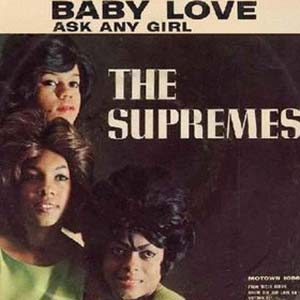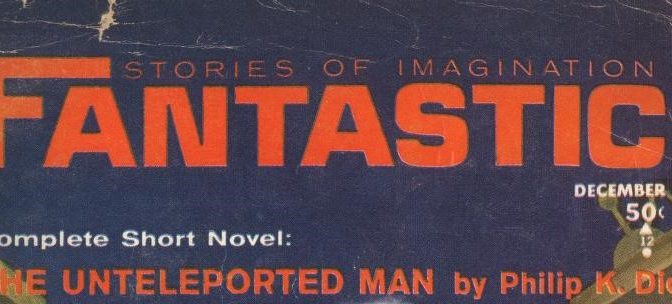
by Victoria Silverwolf
I'll Cross That Bridge When I Come To It
Citizens of the Big Apple now have a new way to travel between Staten Island and Brooklyn, with the official opening of the Verrazano-Narrows Bridge. The structure is named for the Italian explorer Giovanni da Verrazzano, said to be the first European to sail into the Hudson River, way back in 1524. It is the longest suspension bridge in the world, spanning a little over four-fifths of a mile.

Note to proofreader: The name of the bridge has one z, the name of the man has two. Go figure.
More than five thousand people attended the opening ceremony on November 21st, including New York City Mayor Robert Ferdinand Wagner II and New York State Governor Nelson Rockefeller. Even President Johnson supplied a congratulatory speech.

The official motorcade crossing the bridge after the gold ribbon was cut. I don't think they had to pay the fifty cents that you or I would have to pay to get across.
If you'll allow me to stretch a metaphor to the breaking point, popular music can serve as a bridge between people of differing backgrounds, something we Americans could use during these times of racial strife. Case in point, as Rod Serling might say, is the fact that the Motown hit Baby Love, by the trio known as the Supremes, has been at the top of the US charts all month, and shows no sign of going away any time soon.

That makes the Supremes the first Motown act to reach Number One twice. Don't believe me? Ask any girl, or boy for that matter, who listens to Top 40 radio.
Appropriately, the latest issue of Fantastic features a lead novella about crossing the immense gap between the stars.
Why? To Get To The Other Side

Cover art by Lloyd Birmingham.
The Unteleported Man, by Philip K. Dick

All interior illustrations in this issue by George Schelling.
Rachmael ben Applebaum is a man with some serious problems. His father recently died, apparently by suicide. (There are hints that this may not be the case, but the question is never resolved.) Rachmael inherited the family business, which happens to involve faster-than-light starships. Not much faster, however; it still takes many years to reach their destinations.
Applebaum Enterprises is in ruins, because the rival company Trails of Hoffman has control over teleportation technology that reduces the travel time to minutes. In this future overpopulated world, millions of people have already paid a small fee to be zapped to Whale's Mouth, a planet orbiting the star Fomalhaut. The teleportation machine only works one way, so nobody has ever returned. The sole evidence for what things are like on Whale's Mouth comes via broadcasts from the planet. They make the place sound like a paradise compared to Earth.

Two minor characters in the story, considering a long-distance move.
Trails of Hoffman deliberately became a major stockholder in Applebaum Enterprises, so Rachmael now owes them a huge debt. They also have the legal right to ownership of the only starship he still possesses. Desperate to find out what's really happening on Whale's Mouth, he engages the services of Listening Instructional Educational Services, derisively known as Lies, Incorporated. Despite the name, the organization is actually interested in the truth. They serve as a private espionage agency for their clients.
What follows is a complex tale of plots and counter-plots, involving not only the groups I've noted above, but the United Nations, which is now a powerful world government, dominated by a reunited Germany. After many adventures that could have come out of a very strange, futuristic James Bond novel, Rachmael manages to set out alone on his starship, willing to spend eighteen years getting to Whale's Mouth and another eighteen years on a return flight to Earth. Meanwhile, Trails of Hoffman, Lies Incorporated, and the UN have their own plans, not to mention the folks on Whale's Mouth.
As usual for this author, there's a complicated background, plenty of twists in the plot, and multiple viewpoint characters. Also typical is the fact that things are not always as they seem. It's obvious from the start that Whale's Mouth isn't the Utopia it claims to be, but it's also not quite what Rachmael fears it might be. One of the organizations mentioned above seems to be an enemy, but turns out to be an ally. Even the title of the story is misleading.
As I've hinted, the story has the flavor of spy fiction, mixed with a lot of science fiction concepts. Although the mood is serious, even grim, there's a touch of satire and absurdity. (One character fears losing his job to a trained pigeon.) The plot always held my interest, and the characters are intriguing. (Some meet with sudden, unpleasant ends, so don't get too attached to them.)

See what I mean?
My one quibble is that the novella stops in an open-ended fashion. Perhaps the author intends to expand it into a novel.
Four stars.
I Am Bonaro, by John Starr Niendorff
Here's an odd little story by an author completely unknown to me. A disheveled old man stumbles out of a boxcar, unable to speak, wearing a sign around his neck, bearing the words in the title. He wanders around, holding out a sponge to everyone he meets. Flashback sequences reveal his miserable childhood, when he developed the power to change himself into anything in order to escape his tormentors. The end explains his current condition, and the reason for the sponge. The whole thing is weird enough to be worth a look.
Three stars.
IT, Out of Darkest Jungle, by Gordon R. Dickson
Written in the form of a screenplay, this is a spoof of bad science fiction monster movies. You've got the young, handsome scientist, the beautiful assistant who loves him, the older scientist who makes an amazing discovery, and the monster. It's all very silly, and almost too close to what it's making fun of. (It makes me feel like I saw this thing on Shock Theater.) Readers of Famous Monsters of Filmland may get a kick out of it.
Two stars.
They're Playing Our Song, by Harry Harrison
In this very short story, a quartet of long-haired rock 'n' roll musicians, pursued by screaming teenage girls, turn out to be something other than ordinary superstars. This broad parody of the Beatles has an ending you'll see coming a mile away.
One star.
The Fanatic, by Arthur Porges

As the blurb suggests, sensitive readers may wish to skip this story.
The title character believes that alien invaders take the form of animals. He thinks he can detect them, because their behavior is slightly different from that of ordinary animals. He uses very disturbing methods in his quest to discover the truth. The conclusion is predictable.
I have to confess that there's a certain horrifying effectiveness to the narrative, but it's not one that most readers will enjoy.
Two stars.
Merry Christmas From Outer Space, by Christopher Anvil
Told through letters and interstellar messages, this is a comedy about Earthlings and aliens. Two rival extraterrestrial forces are hidden on Earth. One places a mind-disrupting device near the other's location. It turns out that the thing was pointed the wrong way, leading to a series of confused messages between a writer and a science fiction magazine.

I guess this is the machine that causes all the trouble.
You could easily take out the stuff about the aliens, and wind up with a mundane farce about miscommunication. Unless you find back-and-forth exchanges about payment and cancelled checks to be funny, I doubt you'll be amused.

Could this be the author having his story accepted by the editor?
One star.
Worth Paying The Toll?

OK, so this isn't the right bridge. Sue me.
By coincidence, a copy of the magazine costs just as much as crossing the Verrazano-Narrows Bridge. (I doubt toll collectors will accept it instead of cash.) Making an analogy between the two, I'd say that the structure starts off strong enough, but the quality of the architecture drops off rapidly after that, ending with a big splash into a metaphorical ocean of poor-to-mediocre stories.
Of course, things could be worse, if you happened to be crossing the Tacoma Narrows Bridge on November 7th of 1940.

The hopeful beginning.

The tragic end.
Let's just be thankful that reading a bad story isn't as dangerous as crossing a poorly designed bridge.


For the first time in ages, I've enjoyed a Phil Dick story. There were certain elements which bothered me, but they paid off in the end. This was an excellent tale.
"Bonaro" was an odd thing. In a way, I'm surprised the author didn't sell it to Avram Davidson. It would have tickled his fancy.
Dickson's "script" was definitely too close to what it was satirizing. Of course, most of those schlock monster films walk a very thin line of self-parody to begin with. That makes it rather hard to mock them properly.
I might give the Harrison two stars, but it was awfully predictable. There was also a large element of cranky old man complaining about the stuff kids these days listen to. At least it was very short.
Arthur Porges has never really been better than a workmanlike journeyman. Alas, several of his recent stories, including this one, have failed to live up to even that.
The Anvil is where I strongly disagree with Victoria. Unusually so, given that where we most often disagree is her greater tolerance for more experimental forms, and this is anything but. Anyway, I found it mildly amusing, quite readable and would give it a solid three stars.
I have always liked Phil Dick. This is as good a place to bring this up as any… why weren't any Dick novels , in the 1950s serialized in Galaxy? I remember thinking when I read Solar Lottery , man this would be right up H L Gold's alley! Did Dick offer it to Gold? Am thinking Dick had enough snap to know that Campbell was not going to buy any of his stuff. Gold did buy short stories from Dick… those early Dick novels would have fit in F&SF too… it's a puzzle did Dick submit ? I can't imagine ACE was paying extra!! The small supplements from Galaxy and F&SF would have been welcomed by Dick.
I don't know whether PKD ever submitted novels to GALAXY, but he apparently got fed up with Gold's textual meddling with his short fiction, and stopped submitting anything to GALAXY. Last appearance there was November 1955. He resumed publishing in GALAXY about the time that Pohl was in practice, if not yet in name, not really editing the magazine.
As for F&SF, he apparently did not submit novels, but Boucher is said to have told him that he would have been happy to publish "A Glass of Darkness," the long novella published in SATELLITE and then Ace Doubled as THE COSMIC PUPPETS. But his next novel was EYE IN THE SKY, which was probably too long for F&SF and would not have lent itself to drastic cutting. After that, he sold TIME OUT OF JOINT to INFINITY, where it was announced under the title BIOGRAPHY IN TIME–in the last issue of the magazine before it folded. (Think he got paid before that happened? Seems unlikely.) It ended up being serialized in NEW WORLDS. I have no idea whether he tried to sell that one to F&SF.
Always good to pick up a copy of Fantastic. Whilst not every story will be to my tastes I always feel it is willing to do something interesting which I appreciate.
I think this will be the final Dick story of a year full of them. And they have been a mixed bag. This was one right in the middle for me. It had some interesting elements but I found some of quite heavy handed and clumsy.
I Am Bonaro is very weird, not sure what it is about at all but definitely unnerving.
Dickson's piece I definitely agree, doesn't work as satire really as it is too close to actual bad monster movies that are two-a-penny.
Harrison once again misses the mark and seems very dull satire.
Porges continues to be very flat and dull, not for me.
And finally I am on the Pro-Anvil camp, it is slight but very amusing and an unusual style made for a more interesting read. Reminded me of an old fashioned farce.
So whilst the actual contents of the issue would not averge a high score, with the exception of the Porges, they felt at least different which is what I come to Fantastic for.